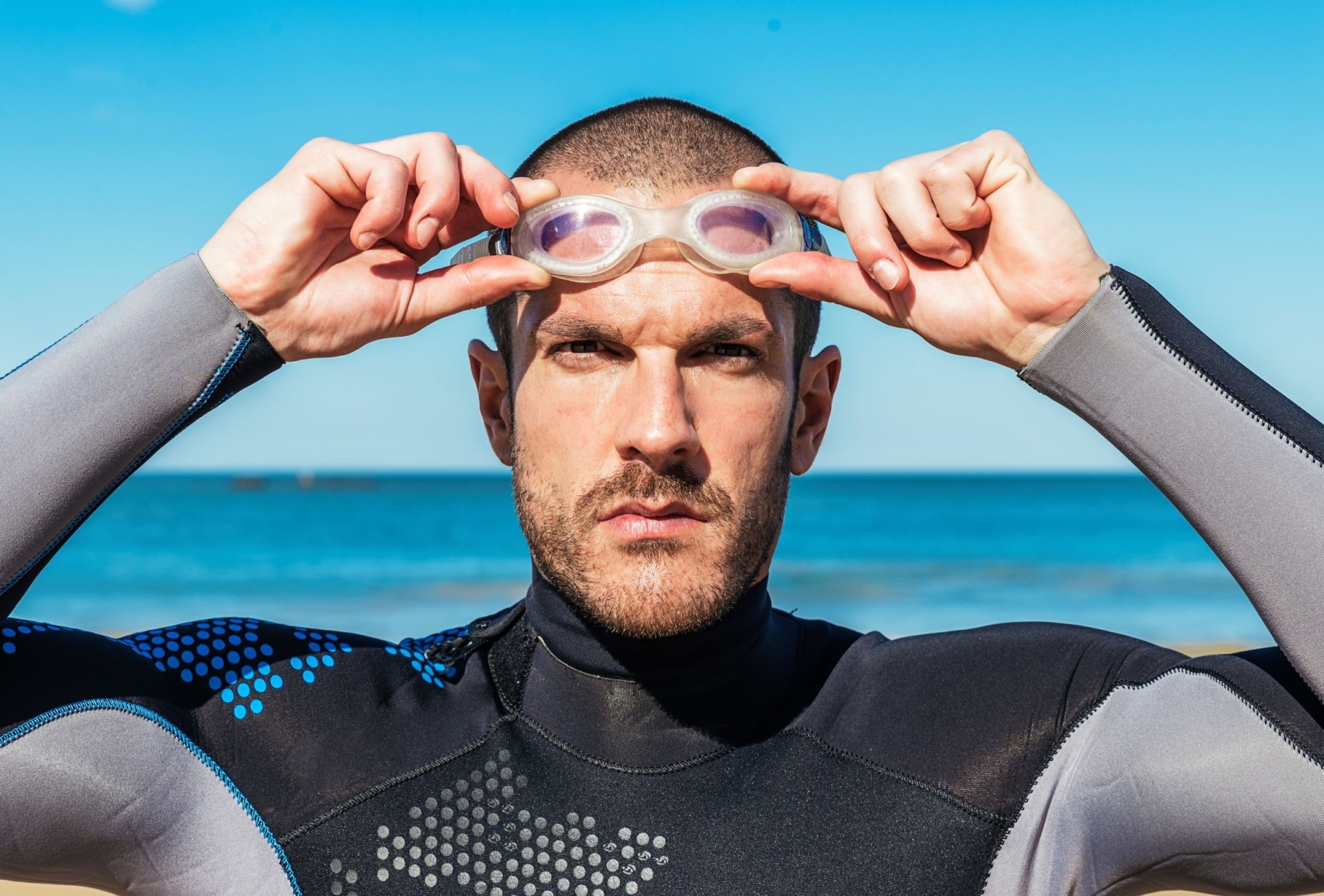The ocean is salty and can often leave your eyes dry, itchy, and burning.
Because of this, it is easy to assume that surfers would opt for wearing a mask or goggles when they are in the water.
Although many ocean sports make use of goggles, you may be surprised to find out that it is very rare for a surfer to wear eye protection while surfing.
There are always special case scenarios where surfers may choose to or need to wear goggles while in the ocean, but in general, it is unlikely.
Below we will take a look at what wearing goggles while surfing may entail, their benefits, downsides, and when they might be recommended.
- Can You Surf With Goggles?
- 5 Benefits of Wearing Goggles When Surfing
- 8 Downsides of Wearing Goggles When Surfing
- Are There Situations When It May Make Sense to Wear Goggles?
- Are There Special Surfing Goggles?
- The 2 Main Reasons Why Most Surfers Don’t Wear Goggles
- How to Protect Your Eyes Without Goggles
- Conclusion
- You Might Also Like…
Disclosure: this post contains affiliate links (clearly marked with ), which means we may earn a commission if you buy something through them, at no additional cost to you.
Can You Surf With Goggles?
In short, the answer is yes, it is possible to surf with goggles, although it is unlikely that you will want to.
Although they will protect your eyes from saltwater, goggles often cause more problems than solutions while surfing.
From vision problems to losing them, and of course, the bizarre way you will look, wearing goggles is a possibility, but something most surfers will stay away from.
5 Benefits of Wearing Goggles When Surfing
There are very few benefits for most people to wear goggles while surfing, but there are a few use cases that, on occasion, push surfers to at least give them a try.
1. Salt Protection
One of the main reasons why a surfer might choose to wear goggles is that their eyes are particularly sensitive to saltwater.
This is usually true for new surfers who have not spent a lot of time in the ocean.
Wearing goggles will keep the saltwater out of your eyes, and therefore reduce the dryness and itch that often follows prolonged exposure to the ocean.
2. Bacteria Protection
The ocean is a breeding ground for bacteria, and therefore often causes infection.
One of our greatest advantages is our eyesight, and infection in the eyes could lead to larger problems.
As goggles keep water away from our eyes, they too will create a barrier from the bacteria.
3. UV Protection
A major side effect of surfing in the bright sunlight is surfer’s eye.
Surfer’s eye occurs mainly from the sun’s UV light bouncing off of the shiny ocean surface and into our eyes.
This leads to damaged blood vessels in the eye which cause them to go red.
Although generally not a major health concern, surfer’s eye can lead to a loss of sight when taken to an extreme.
Some goggles are designed to filter out the sun’s UV light, much the same as sunglasses.
A surfer with sensitive eyes may choose to use these goggles over sunglasses as they are a more secure and safer option.
4. Underwater Vision
The main purpose of goggles is to improve our underwater vision.
Although when surfing, we do not spend a large amount of time with our heads underwater, there are serious benefits to opening your eyes underwater when surfing.
These benefits mainly come from knowing how far from the ocean floor you are when duck diving, as well as knowing when a wave has passed overhead.
If you are the type of person that keeps their eyes closed underwater, goggles may help give you an edge.
5. Improved Eyesight
Perhaps the biggest reason for surfers to wear goggles while surfing is not to protect their eyes from the ocean, but rather to improve their eyesight in general.
If you struggle with bad eyesight and make use of prescription glasses or contacts throughout your daily life, you will likely need something similar in the ocean.
Many people need glasses for surfing but are aware of the potential dangers of using contacts in the ocean.
It is possible to get prescription goggles that will allow you to see when in the ocean, or at the least, the goggles will serve the purpose of keeping your contacts safe.
This is a safer option than wearing your regular glasses while surfing.
8 Downsides of Wearing Goggles When Surfing
There tend to be more downsides to wearing goggles while surfing than there are benefits.
Although you may choose to wear goggles, it is important to understand the negative side so that you can make an educated decision on whether they are right for you.
1. Comfortability
Wearing goggles for a prolonged period can become incredibly uncomfortable.
This, of course, is not likely to affect you if you are only surfing for 30 or 40 minutes, but on those days where the swell is rolling in, and you have all the time in the world, surfing all day may be the only thing you want to do.
In this case, wearing goggles for a few hours may be too uncomfortable to bear.
This is especially true if you plan to surf every day, and therefore do not give your face a break from the pressure of the goggles.
2. Eye Squeeze
Closely related to the comfort of wearing goggles is the eye squeeze.
If you have ever worn goggles, you will know the feeling of pressure around your eyes, and red rings once you take them off.
This pressure is not only uncomfortable but can also lead to eye damage over long periods.
3. Eye Damage
Unless your goggles are custom-fitted, they are likely slightly too big or too small.
While goggles that are too big will let water in, and therefore not serve their purpose, goggles that are too small can cause intraocular pressure, and over time, lead to irreversible eye damage.
As you are likely to opt for slightly too small goggles over slightly too big ones, the pressure caused by these will not only cause discomfort but have a high chance of causing damage to your eyesight, especially during long surf sessions.
4. Dislodged
One of the biggest downsides of surfing with loose objects such as hats, glasses, goggles, and jewelry is that there is a strong chance of them being lost.
Surfing is, in most cases, considered an extreme sport. It is often rough and will leave you slightly beaten from crashing waves and heavy wipeouts.
Although goggles are secured tightly around your head (which makes them a better option than glasses) rough waves can easily knock them off of your face.
Even if your goggles are buoyant, it is likely they will be washed away by the swell and never seen again.
5. Not Ideal for Big Swell
Closely tied to the above point, the larger the swell, the more likely it is that you will lose something like a camera while filming yourself surfing, jewelry, or your goggles.
Surfing in smaller waves is less likely to be an issue, but if you are accustomed to surfing with goggles, you may find it difficult to progress to larger waves.
6. Fog
A big problem that scuba divers and other athletes that use goggles and masks face is the fogging of the glass.
This problem is more common among those who wear masks (goggles that cover the nose) because hot air is often introduced through breathing through our nose.
That, however, is not to say that the problem does not occur with goggles.
If there is moisture inside your goggles, with exposure to the warm sun and heat emitted from around your eyes, the lenses often become clouded with fog.
When this happens, it is a simple fix. Take them off, rinse them, and put them back on.
Although the fix is easy, this can be a problem when it occurs while you are making your way past a large break and cannot stop to remove your goggles.
Similarly, if your goggles fog while you are riding a wave, you will not be able to see where you are going, which at best, could ruin your ride, and at worst, become dangerous to you and other surfers.
7. Bad Sight When Out of Water
Goggles are designed to work underwater.
They are not made for wearing on the surface and therefore can reduce your vision when your head is above the water.
This difference may seem small to some, while to others it can be a big problem.
A limited vision is dangerous while surfing as it increases our chances of colliding with other surfers, hitting rocks, and misjudging how far away a breaking wave is.
8. Look Like a Kook
One of the least important downsides of surfing with goggles is that it will make you stand out, and is fairly likely to expose you to some judgemental comments.
Of course, this should never be a reason to not use them if you need them, or if you are more comfortable wearing goggles while surfing, but it can bring down your self-esteem, which is an important factor in the surfing world.
Are There Situations When It May Make Sense to Wear Goggles?
For most, surfing without goggles is natural, and they see no need to use them.
However, in some cases, wearing goggles while surfing may make sense, and could possibly be the best solution.
The two main reasons it could make sense to wear goggles while surfing is to protect sensitive eyes and to correct bad eyesight.
Having eyes that are sensitive to ocean water, whether it is due to the salt or the bacteria, can be awful if you want to try surfing, or if it is a sport you have fallen in love with.
Of course, there is the option of closing your eyes before your head goes under, but this is often not enough.
As surfing often goes hand in hand with a steady wind, there is usually a lot of spray-back and splashing of the waves.
Some people choose to wear goggles in order to simply make this a bearable experience.
Likewise, as saltwater can blind some, they may have sight problems.
There are a few solutions to this: Wear glasses, wear contacts, or wear prescription goggles.
As wearing glasses while surfing can be dangerous, and contacts should not make contact with seawater, for some, wearing either prescription goggles, or goggles to protect their contact lenses is the best available option.
Are There Special Surfing Goggles?
Although you will find some “surfing goggles” when you search the web, there is not much difference between these and swimming goggles.
The concept is the same, however, there are a few things that are often different.
The best goggles to surf with are those with a higher volume (more space between the lens and your eyes), a wider field of view, and tinted or polarized lenses.
You will likely find swimming goggles that fit all of these criteria if you are looking to buy goggles to surf with.
It is important to not only find goggles that fit correctly but to make sure that there is a double strap to fix them onto your head.
Single straps easily slide both up and down, which will leave them falling off of your head more than they stay on.
The 2 Main Reasons Why Most Surfers Don’t Wear Goggles
There are two main reasons why most surfers do not wear goggles, with the first being the primary.
1. Surfers simply do not need goggles.
Except for special case scenarios, our eyes are suited to be in salty water, as they contain salt themselves (think about your tears).
Most surfers can surf, and open their eyes underwater with no problem, and for those who need to keep their eyes closed under the water, they do so without worry and the majority of the time their heads are above the surface.
2. Secondly – which is likely to affect more people than you think – is that people are worried how wearing goggles while surfing will make them look and therefore would prefer to have the inconvenience of poor eyesight or burning eyes.
What others think of us should not affect the way we act and the choices we make.
But for most people it does, and because of this, they make choices based purely on what others may think.
How to Protect Your Eyes Without Goggles
For most surfers, there is no need to add extra protection to our eyes when surfing.
The saltwater in the ocean is not dangerous to our eyes, and in most cases, if you shower after your surf and rinse your eyes, the bacteria will not cause a problem.
That being said, what should you do if you have sensitive eyes but do not want to use goggles while surfing?
In this case, the best option is to keep your eyes closed when going underwater.
Although most surfers keep their eyes open under the water, it is not a requirement.
If it is the UV light that is causing you a problem, besides wearing sunglasses, a hat could be a solution.
Wearing a surfing hat will not completely protect your eyes from the sun, as most of the damage comes from the reflection off of the surface of the water, but hats can still add some benefits.
Conclusion
Wearing goggles while surfing is not a commonly practiced thing, but it is also not unheard of.
Most surfers don’t use goggles because they find no need for them, while others use them as a necessary accessory to protect their eyes or correct their vision.
Surfing with goggles can be uncomfortable and is rarely ideal, but when they best suit your needs, there is no reason why you should not wear them, as long as you take any necessary precautions.
You Might Also Like…
-

Do Surfers Ride Switchfoot? 5 Benefits (& Why You Should Learn It)
-

Do Surfers Shave Their Legs? 5 Common Reasons (+Pros & Cons)
-

Do Surfers Wear Helmets? 8 Situations You Should Wear One (+4 Cons)
-

Do Surfers Poop in the Ocean? Myths & Facts (+5 Tips)
-
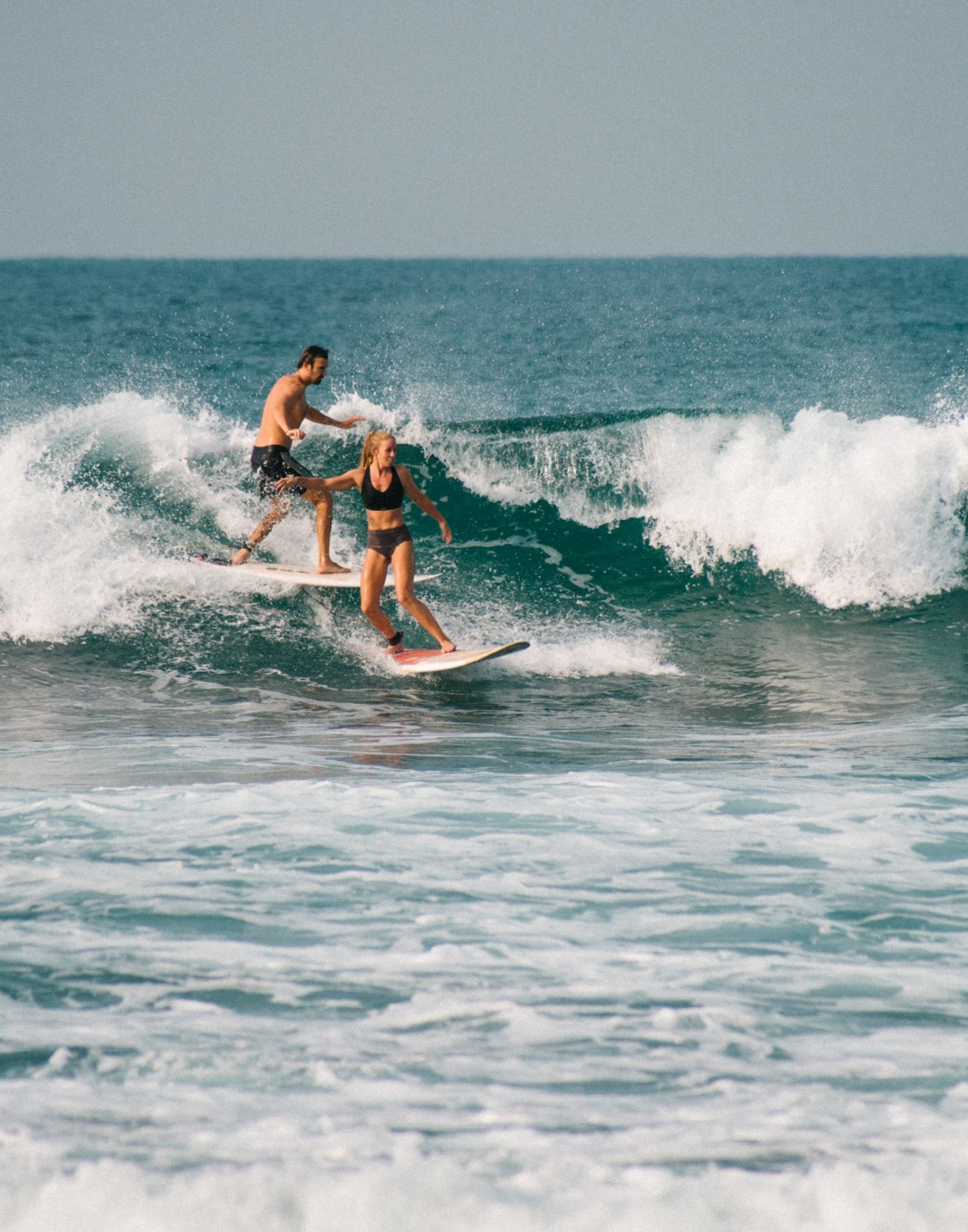
Do Surfers Run Into Each Other? 5 Common Reasons (+8 Tips)
-
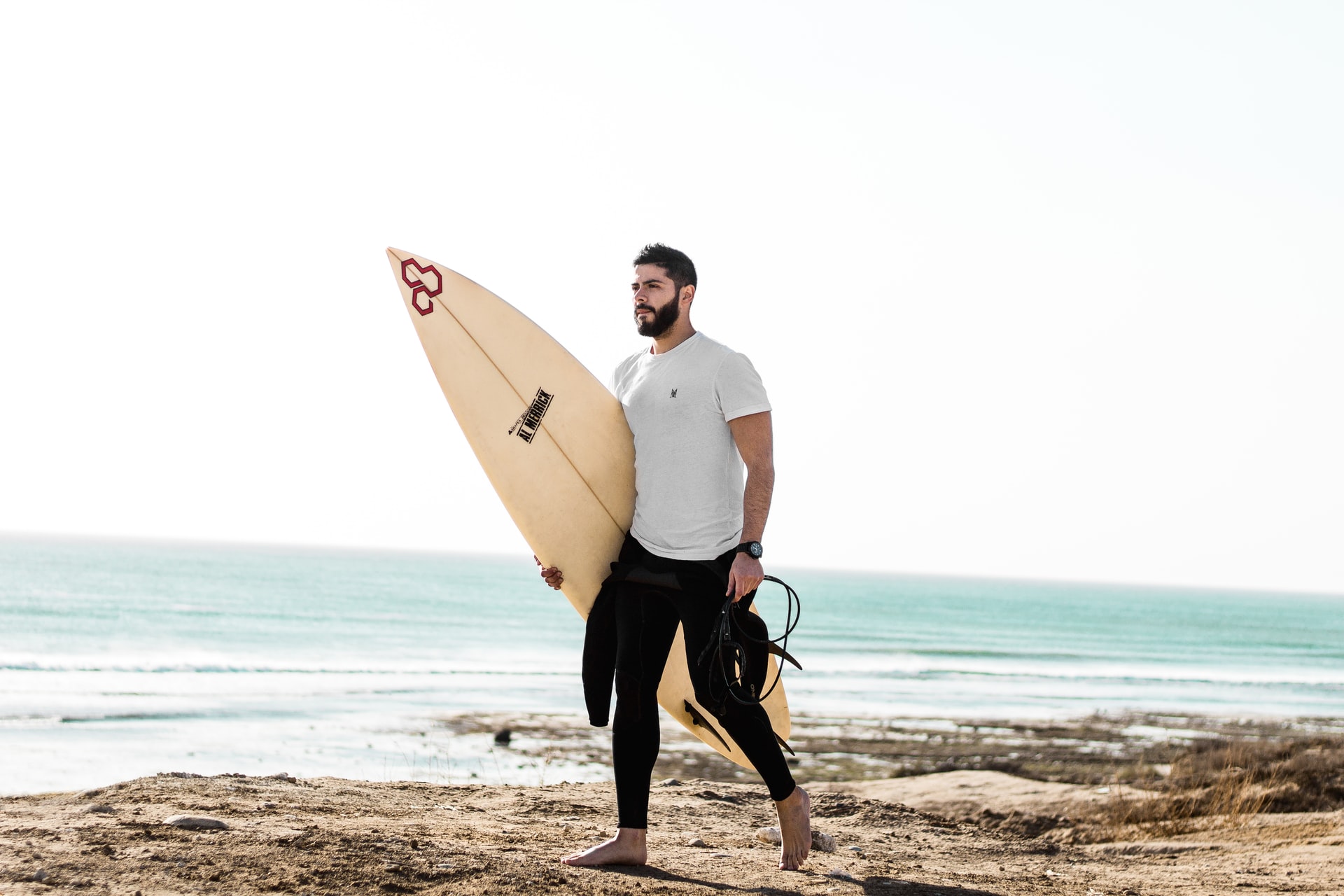
Do Surfers Have Beards? Pros & Cons You Should Know (+4 Tips)
-
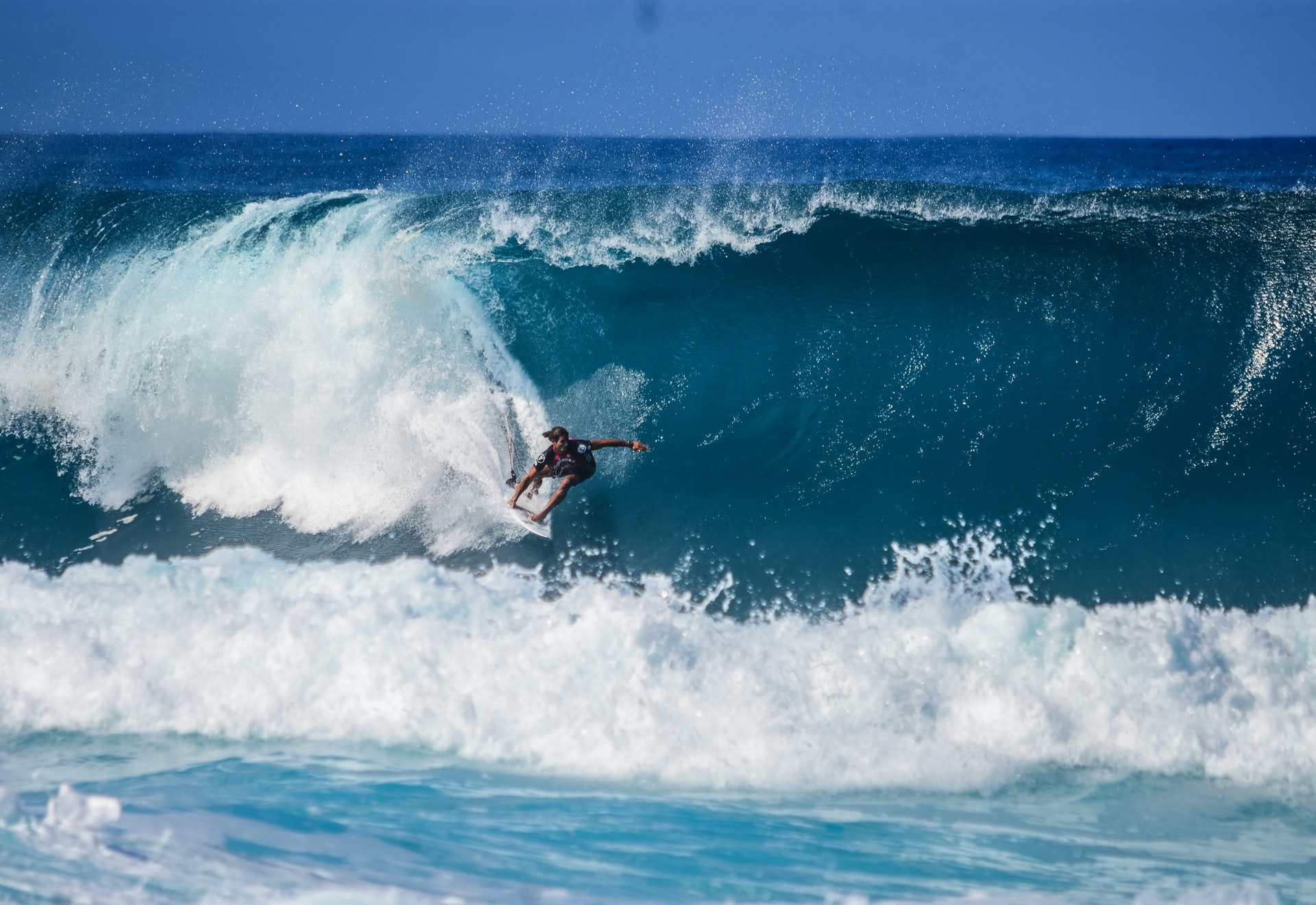
Do Surfers Like Constructive or Destructive Waves? (+Pros & Cons)
-
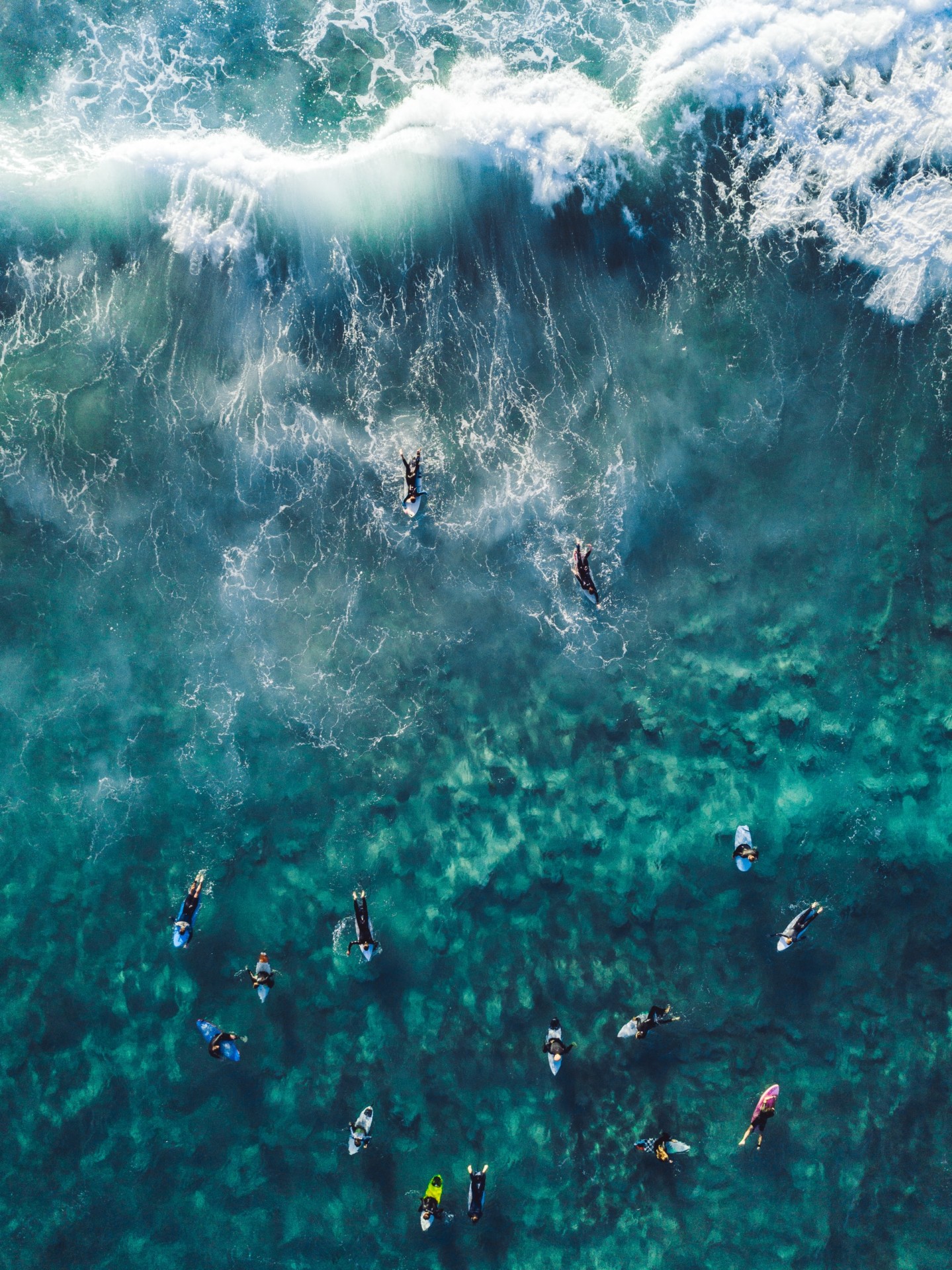
How to Surf Safely: 34 Crucial Tips (Every Surfer Should Know)
-
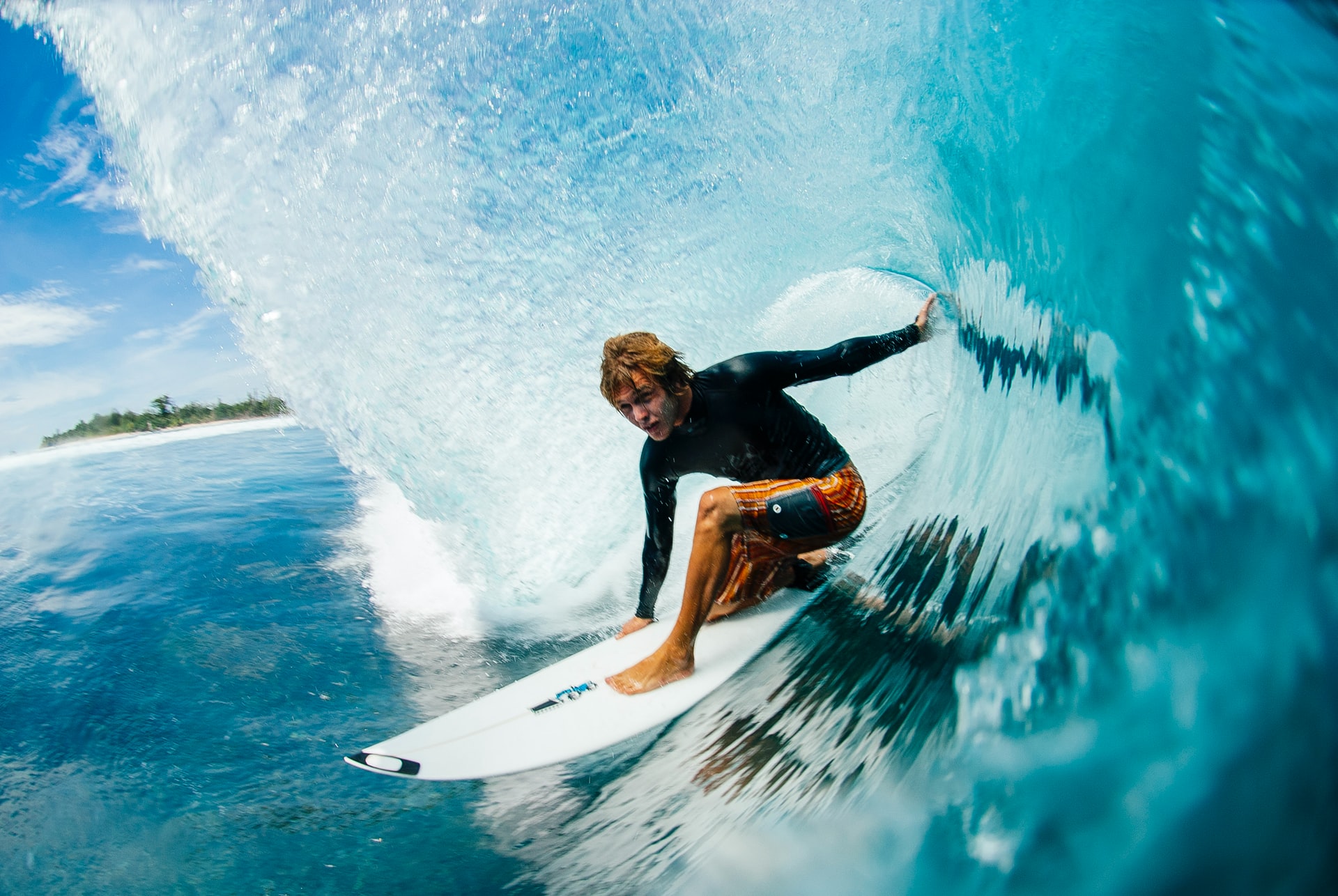
Do Pro Surfers Use Leashes? (+6 Reasons Why You Should Too)
-
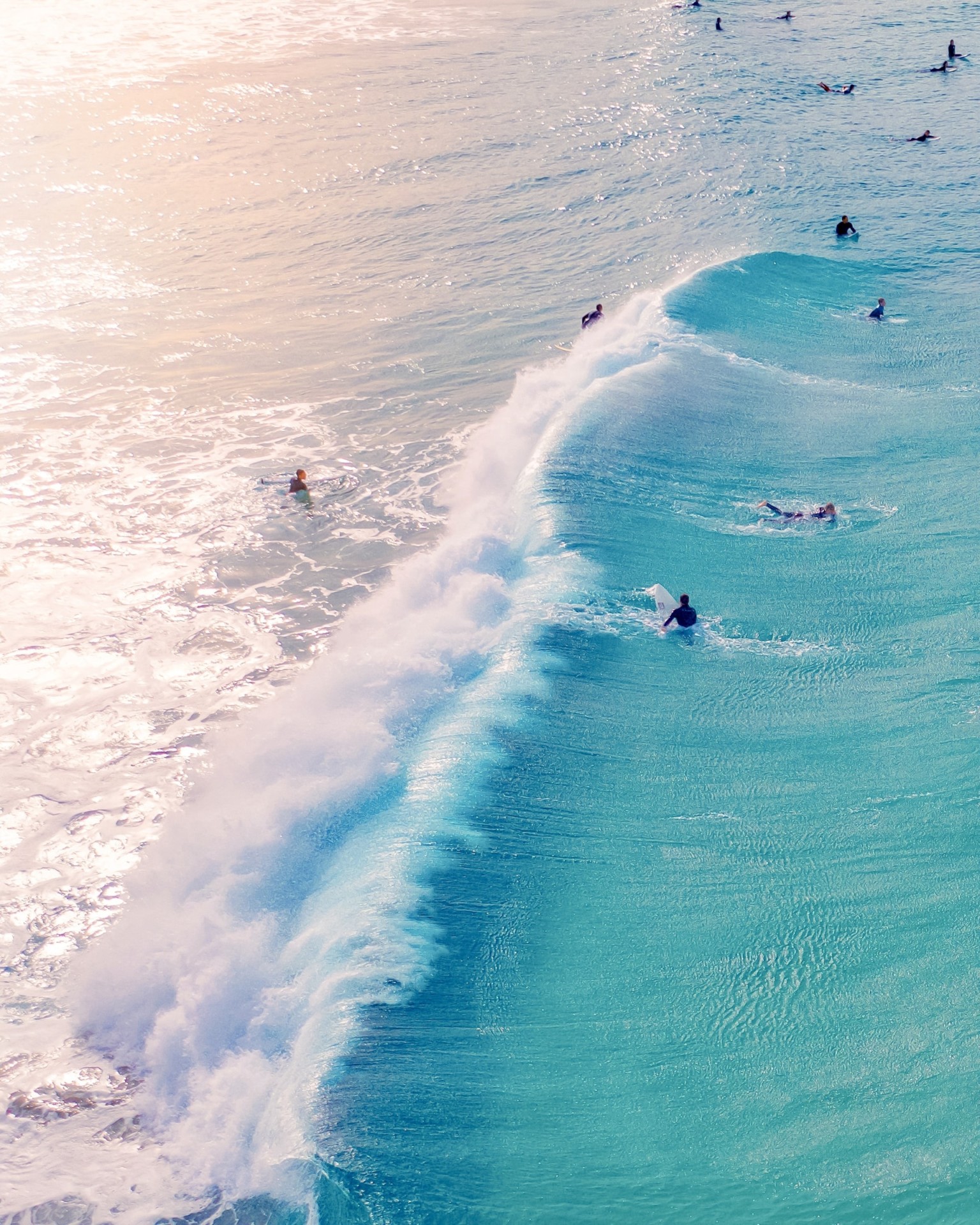
Do Many Surfers Drown? Here Are the Facts (+4 Common Reasons)
-
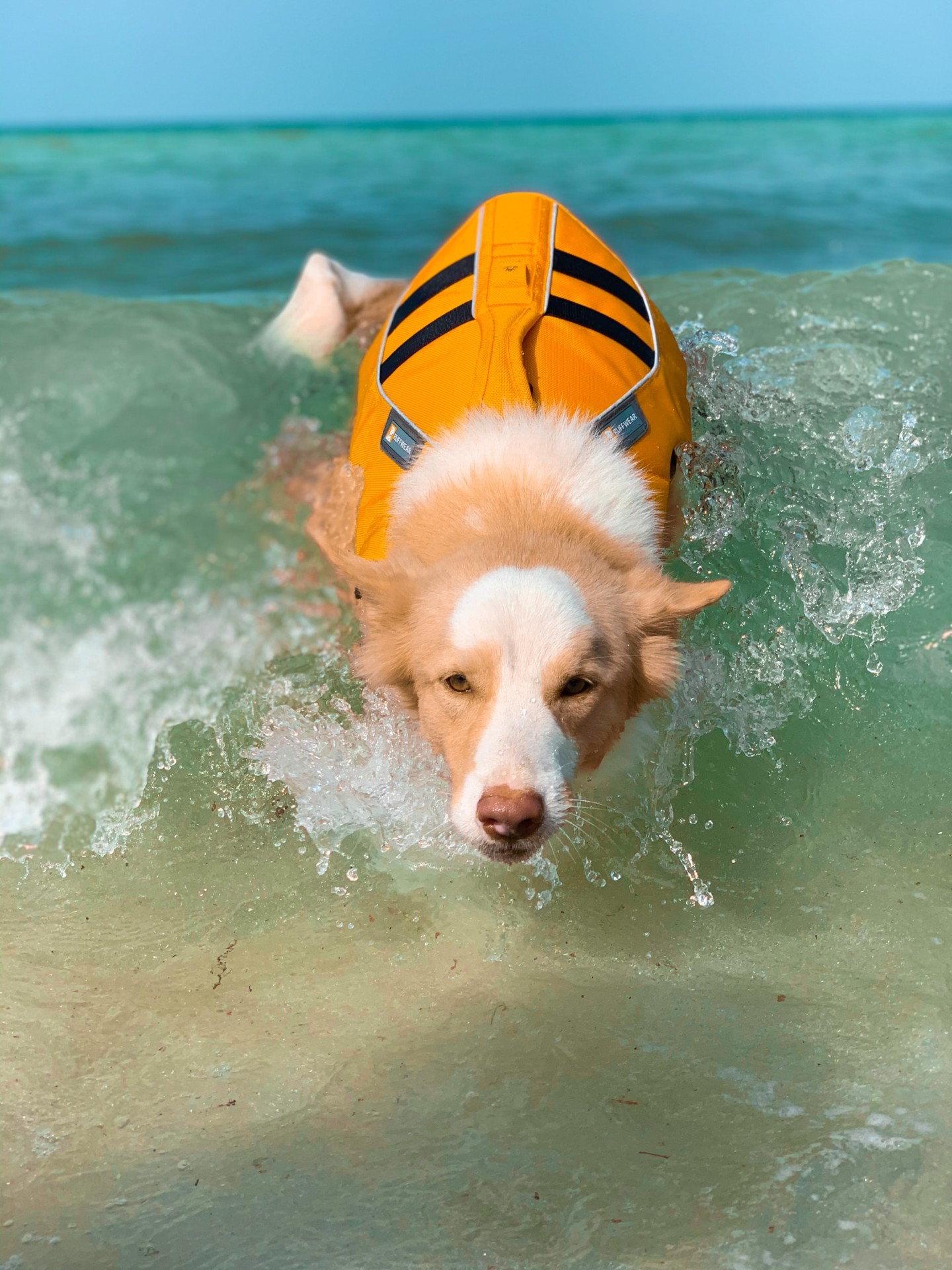
Do Surfers Wear Life Jackets? (7 Reasons Why They Don’t)
-
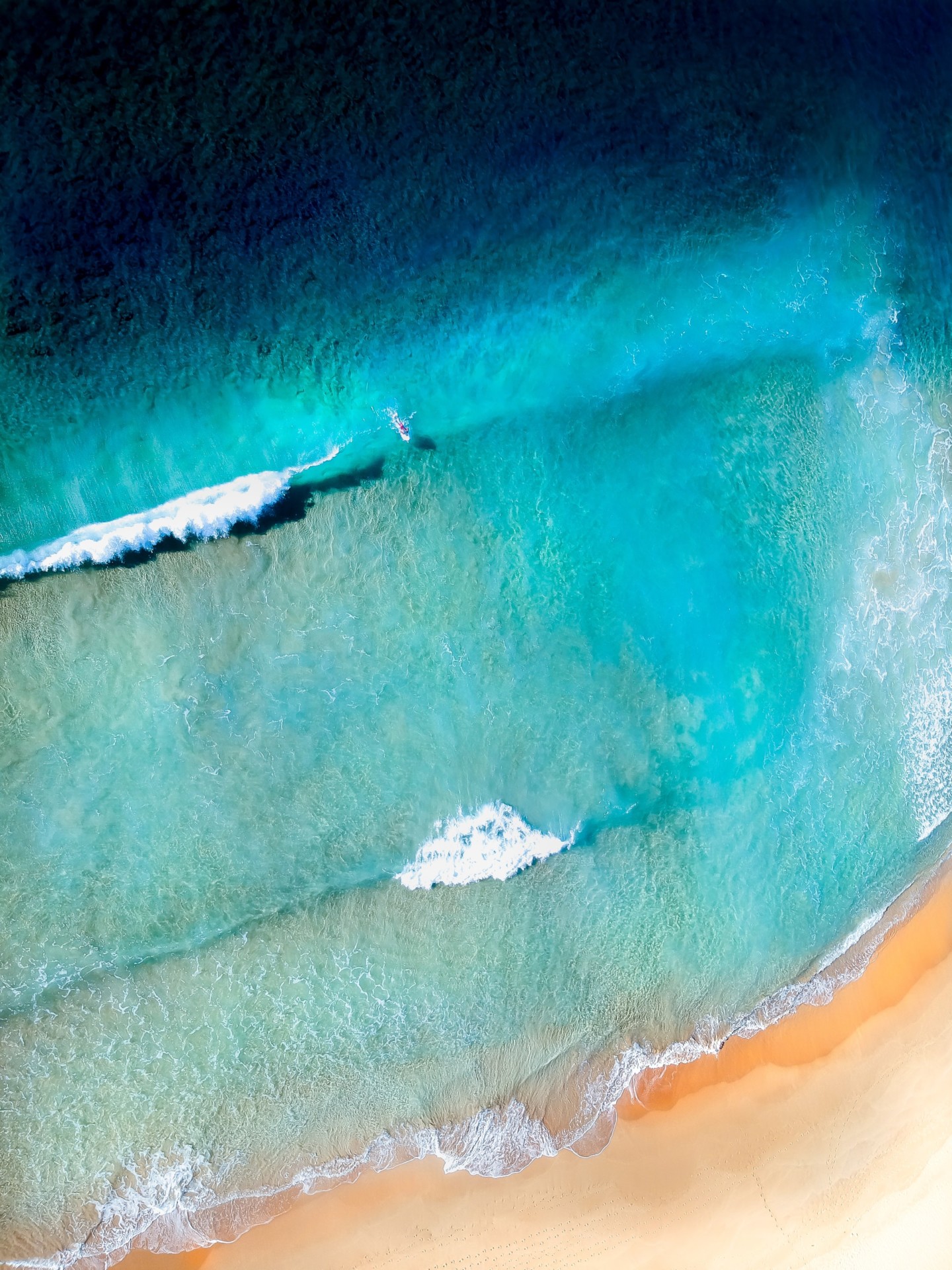
Do Surfers Like Rip Currents? (& How to Use Them Safely)

